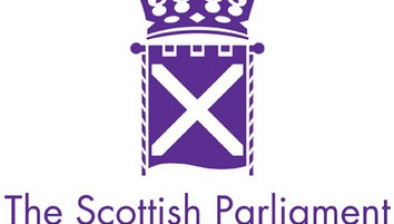Scotland’s revenue increases to a record £65.9bn

Kate Forbes, finance secretary
Scotland’s tax revenues continued to increase in 2019-20, as overall revenues, including North Sea receipts, increased to a record £65.9 billion.
According to today’s Government Expenditure and Revenue Scotland (GERS) figures, Scotland’s Onshore revenues grew by £1.1 billion to reach £65.2bn.
These increases came despite the pandemic depressing public finances. Corporation and VAT receipts fell compared to the previous year and both the Scottish and UK Governments increased spending to tackle the virus.
As a result of this, plus a rise in UK Government spending on reserved matters, Scotland’s notional onshore deficit – the difference between income and expenditure - rose 0.6% to 9.4% of GDP - the same rate of increase as the UK.
Adding North Sea revenues which totalled £724m - £642m less than in 2018-19 - the notional overall deficit stood at 8.6% of GDP.
Finance secretary Kate Forbes said the figures emphasised how COVID-19 had fundamentally changed the fiscal landscape.
Mr Forbes said: “The Scottish Government has responded swiftly to the challenges of COVID-19 and has worked hard to protect Scotland’s economy, providing over £2.3bn of support to businesses.
“The public finances were already facing challenges this year due to the uncertainty caused by Brexit. We are now witnessing an unprecedented health and economic crisis. Countries across the world, including the UK, have increased borrowing to record levels and, as we emerge from the pandemic, high fiscal deficits will inevitably be one of the consequences.
“That is why the UK Government should prioritise economic stimulus over austerity. I will also continue to press for the Scottish Government to be granted additional financial powers to enable us to tailor a response that meets Scotland’s needs.”
She continued: “Scotland, unlike most other countries around the world, large and small, does not currently have the full financial powers needed to chart a way to sustainable recovery from the economic impact of the pandemic. The current situation, with the looming withdrawal of furlough support by the UK Government, means it is now more urgent than ever that we gain those powers.
“Despite the pandemic, and the economic problems that inevitably will arise at the end of the Brexit transition period, we are determined that Scotland should emerge with a stronger, fairer, greener, and more resilient economy. We continue to invest to protect and create jobs, support businesses and strengthen communities, but our ability to do that is constrained by our lack of borrowing powers.
“It is important to stress that 40 per cent of spending and 70% of revenue income in GERS, combined with key powers over the economy, are reserved to the UK Government and outside the control of the Scottish Government. An independent Scotland would have the power to make different choices, with different economic budgetary results.”
Tracy Black, CBI Scotland director, said: “An increase in tax revenues, including onshore, is clearly welcome however Scotland still lags some way behind the whole of the UK when you look at the deficit as a percentage of GDP. Even without considering the impact of coronavirus it’s clear that Scotland continues to spend significantly more than it raises in tax.
“With a thriving private sector key to delivering the revenues needed to fund public spending, the impact of coronavirus has clearly put Scotland’s public finances under considerable pressure. In spite of an acceleration in spending to combat the impact of the pandemic, many Scottish jobs and businesses have been lost – with others remaining on the brink – putting future tax revenues at risk.
“With only the tip of the coronavirus iceberg captured by the latest statistics, it’s clear that further pain is in the post for the Scottish economy. That’s why we need to do everything we can now to secure an effective and sustainable recovery that focuses on job creation, skills and training, kick-starting demand and boosting competitiveness.”







